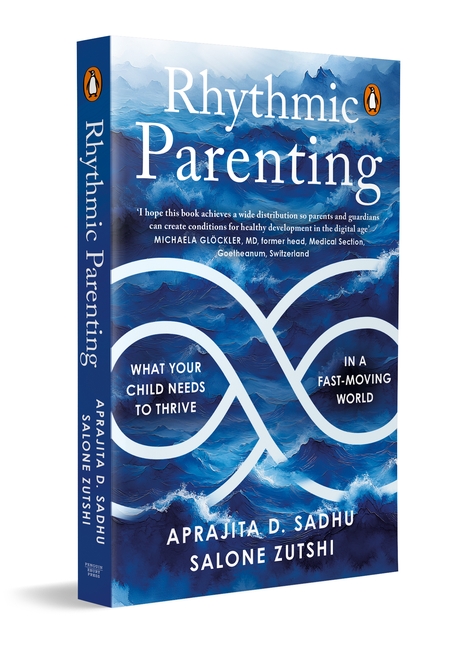
© 2020 Penguin India

Today, children are entering a world that values speed and efficiency above all else, the opposite of what they need to become human beings. Our materialist, hi-tech culture fails to support children through their primary task in the first seven years—forming the physical body. Instead, it creates little adults who are prematurely intellectualized, uneasy in their bodies, and ill-prepared to become physically strong, emotionally resilient, freethinking individuals. To bridge the gap, this book:
Rhythmic Parenting reclaims children’s right to fulfil their highest human potential and places parents at the forefront of this mission.
Imprint: Ebury Press
Published: Jun/2025
ISBN: 9780143473725
Length : 256 Pages
MRP : ₹399.00
Imprint: Penguin Audio
Published:
ISBN:
Imprint: Ebury Press
Published: Jun/2025
ISBN:
Length : 256 Pages
MRP : ₹399.00
Today, children are entering a world that values speed and efficiency above all else, the opposite of what they need to become human beings. Our materialist, hi-tech culture fails to support children through their primary task in the first seven years—forming the physical body. Instead, it creates little adults who are prematurely intellectualized, uneasy in their bodies, and ill-prepared to become physically strong, emotionally resilient, freethinking individuals. To bridge the gap, this book:
Rhythmic Parenting reclaims children’s right to fulfil their highest human potential and places parents at the forefront of this mission.
Salone, a sociologist by training, moved towards education once she became a parent recognizing the need for meaningful education, she co-founded Ukti, the first Waldorf school in North India. With daily, hands-on work teaching children, training teachers, developing curricula, and supporting parents, Salone grew the school from the grassroots to a thriving learning community, creating systemic and long-term positive impact in the lives of children, parents, and teachers. Today, she offers guidance to parents on helping children learn and grow in developmentally appropriate ways. She remains committed to inspire and be inspired and to create change and be transformed through her work.
Aprajita co-founded Ukti, the first Waldorf school in North India, as a passion project. With her vision and guidance, Ukti grew into a place where teachers taught from inspiration and children learned with joy and vigor. Inspired by the work, she quit her career as an economist to teach middle-schoolers through the COVID-19 pandemic–a powerful, transformative experience. Today, she teaches highschoolers at San Francisco Waldorf School and enjoys learning from the younger generation. Her conviction in the human potential to create a life of purpose drives her to grow new capacities in herself and inspire others to do the same.